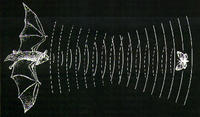-
Pre-crime detection scanners raise legal, scientific issues
DHS has successfully tested a pre-crime detection scanner on humans. The scanners gauge facial expressions and other biometric data to detect whether someone is giving cues for mal-intent. The DHS algorithm also includes scanning a person’s gender, ethnicity, breathing, and heart rate in a non-intrusive way through video and audio scanning. Critics want to know whether Americans agree that it is worth their safety interests to be watched in every public space, or will pre-crime scanning cross certain privacy rights?
-
-
Unused DHS fund help Pasadena upgrade helos
The city of Pasadena will use leftover funds from the 2008 Homeland Security Act to purchase a number of upgrades for its air operations unit; on 13 November the city council approved spending the remaining $650,000 of the original grant to purchase an array of high-tech devices, including an infrared camera, night-vision technology, and quiet technology tail rotor blades
-
-
New Jersey first responders to get universal IDs
Starting next year, 12,000 first responders in New Jersey will receive special IDs to help enhance security and cut down on identity fraud during emergencies and natural disasters
-
-
Tech breakthrough allows first responders to carry mini resuscitators
Thanks to PerSys Medical, first responders operating in rugged terrain are now able to carry a miniaturized version of a critical medical device that helps patients breathe
-
-
Serving and protecting – and saving money in the process

As municipalities battle tight budgets and rising gasoline prices, law enforcement fleets across in the United States have found a way to save taxpayer dollars by shifting to clean-burning, American-made propane autogas
-
-
Sprint customers first to receive wireless emergency alerts
Thanks to Sprint, the Federal Emergency Management Agency (FEMA) will now be able to broadcast wireless emergency alerts to cell phones for the first time; the move allows FEMA, the president of the United States, the National Weather Service, or local and state emergency officials to broadcast warning messages and safety information through text messages
-
-
Surveillance plane to circle Lancaster ten hours a day

Beginning in May, a Cessna 172 airplane will hover over the Lancaster, California for ten hours a day collecting intelligence and keeping an eye on residents; the surveillance program was recently approved by city leaders in an effort to fight crime, but the prospect of aerial surveillance has critics concerned about privacy violations
-
-
Sector Report for Tuesday, 15 November 2011: Law Enforcement Technology
This report contains the following stories.
Plus 1 additional story.
-
-
Technology helps Detroit fight crime
Detroit Police Chief Ralph Godbee Jr. credits new technology and tactics for helping to reduce homicides by 15 percent
-
-
Drones and privacy
With civilian unmanned surveillance drones now capable of listening in on cell phone conversations, monitoring Wi-Fi traffic, seeing into backyards and windows not visible from the street, and tracking a person’s movement privacy advocates are concerned that the rapid advances in technology could violate privacy rights
-
-
Montgomery County adds drone to arsenal
For local police departments who do not have a helicopter unit or cannot afford one, small unmanned aerial vehicles (UAVs) are quickly becoming a cheap solution; the Montgomery County Sheriff’s Office in Texas recently purchased the ShadowHawk, a small remote controlled helicopter manufactured by Vanguard Defense Industries
-
-
Nature inspires advances in ultrasound technology

Sonar and ultrasound, which use sound as a navigational device and to paint accurate pictures of an environment, are the basis of many technologies, including medical ultrasound machines and submarine navigation systems; when it comes to more accurate sonar and ultrasound, however, animals’ “biosonar” capabilities still have the human race beat – but not for long
-
-
Glitches in nationwide emergency alert test
Last Wednesday the United States conducted its first ever nationwide test of its emergency alert system, but based on reports the test did not go smoothly; instead of hearing the alert tone as the emergency alert title card was being displayed, some DirectTV subscribers were treated to Lady Gaga’s “Paparazzi”
-
-
Budget cuts force Nevada to reconsider security priorities
Next fiscal year Nevada will be forced to adapt to a 47 percent cut in DHS funding. To prepare for this new financial reality, Nevada governor Brian Sandoval has called for a reassessment of the state’s homeland security priorities
-
-
Brazilian fern inspires waterproof coating
A floating weed that clogs waterways around the world has at least one redeeming feature: it has inspired a high-tech waterproof coating intended for boats and submarines
-
More headlines
The long view
Tantalizing Method to Study Cyberdeterrence
Tantalus is unlike most war games because it is experimental instead of experiential — the immersive game differs by overlapping scientific rigor and quantitative assessment methods with the experimental sciences, and experimental war gaming provides insightful data for real-world cyberattacks.
Using Drone Swarms to Fight Forest Fires
Forest fires are becoming increasingly catastrophic across the world, accelerated by climate change. Researchers are using multiple swarms of drones to tackle natural disasters like forest fires.
Testing Cutting-Edge Counter-Drone Technology
Drones have many positive applications, bad actors can use them for nefarious purposes. Two recent field demonstrations brought government, academia, and industry together to evaluate innovative counter-unmanned aircraft systems.
European Arms Imports Nearly Double, U.S. and French Exports Rise, and Russian Exports Fall Sharply
States in Europe almost doubled their imports of major arms (+94 per cent) between 2014–18 and 2019–23. The United States increased its arms exports by 17 per cent between 2014–18 and 2019–23, while Russia’s arms exports halved. Russia was for the first time the third largest arms exporter, falling just behind France.
How Climate Change Will Affect Conflict and U.S. Military Operations
“People talk about climate change as a threat multiplier,” said Karen Sudkamp, an associate director of the Infrastructure, Immigration, and Security Operations Program within the RAND Homeland Security Research Division. “But at what point do we need to start talking about the threat multiplier actually becoming a significant threat all its own?”
The Tech Apocalypse Panic is Driven by AI Boosters, Military Tacticians, and Movies
From popular films like a War Games or The Terminator to a U.S. State Department-commissioned report on the security risk of weaponized AI, there has been a tremendous amount of hand wringing and nervousness about how so-called artificial intelligence might end up destroying the world. There is one easy way to avoid a lot of this and prevent a self-inflicted doomsday: don’t give computers the capability to launch devastating weapons.
